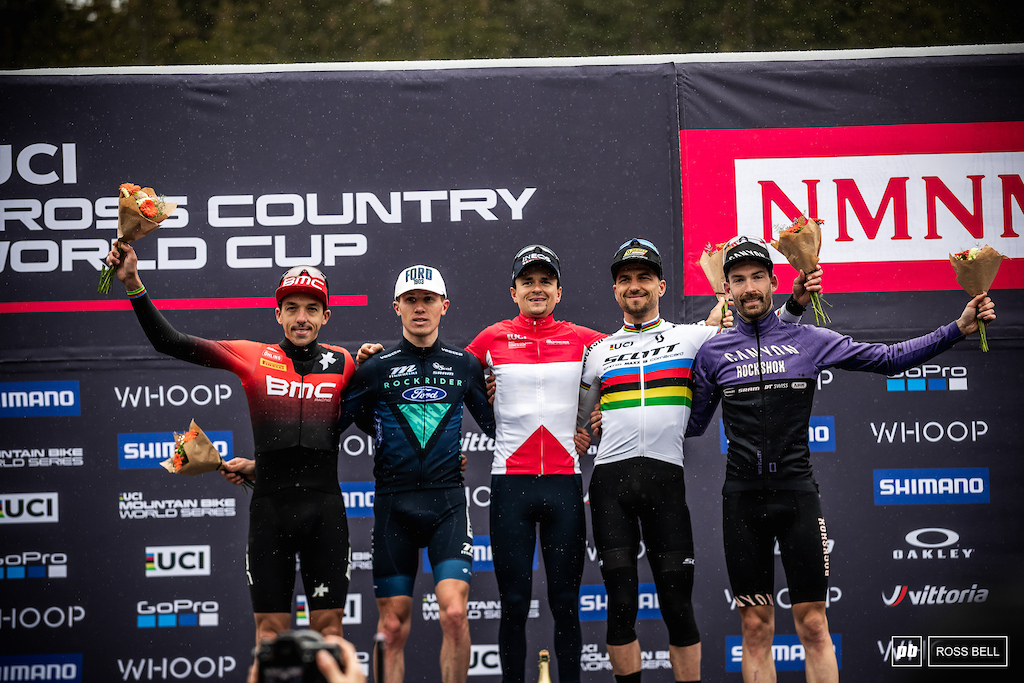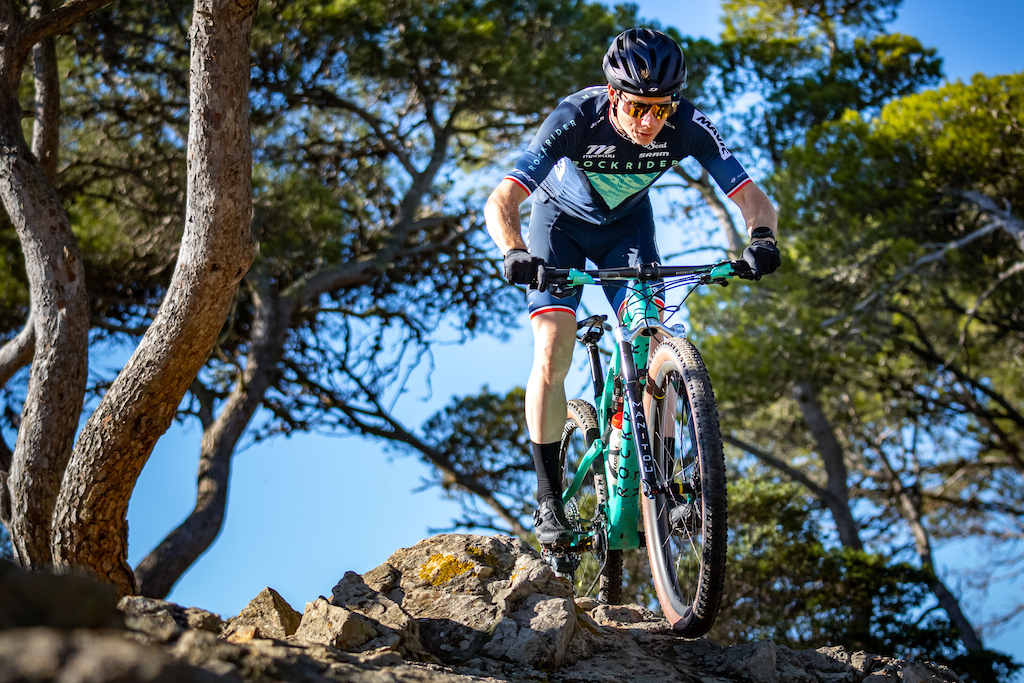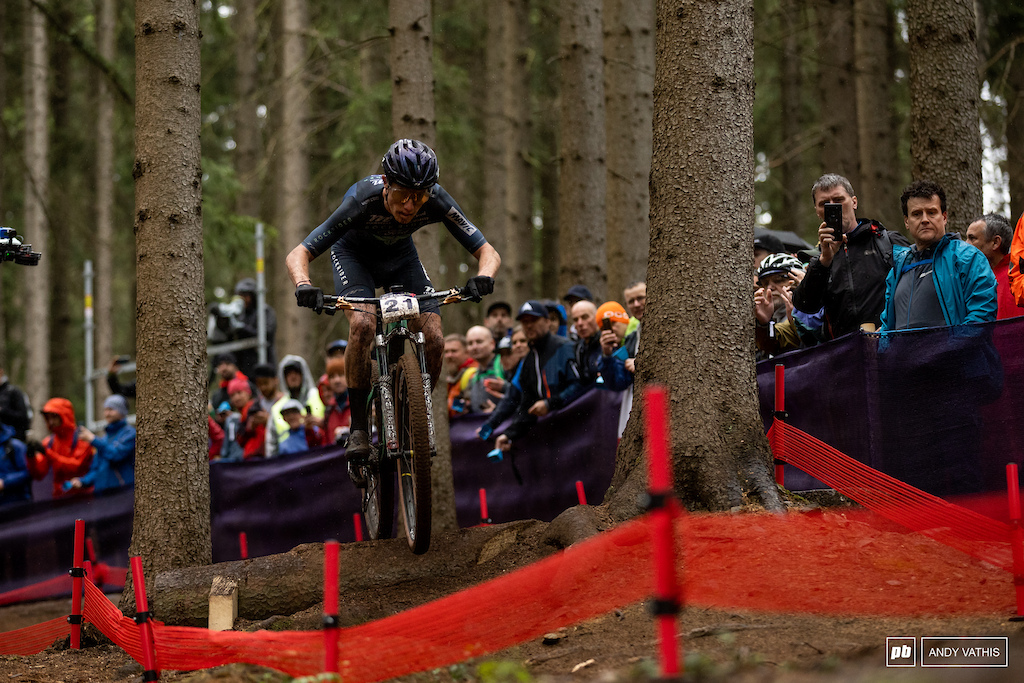
After Joshua Dubau’s incredible weekend, the Ford-supported team are poised to shake things up.
Words: Matt Wragg
Last year I wrote about the then-newly formed Rockrider World Cup XC team looking to shake up the World Cup circuit. I believe that they are looking to change the sport in a profound and unexpected way. Recently they announced their new co-title sponsor for the 2023 season: Ford.
Yes, that Ford. The globe-spanning, American auto behemoth. To be more precise, it is the French subsidiary of Ford, but a car maker is once more title sponsor of a mountain bike racing team, and we have not seen that in our sport in twenty years.
Rockrider are Decalthlon’s in-house mountain bike brand. For anybody not familiar with Decathlon (I’m looking at people living in North America here), think REI, but more general, more value-focused and much, much bigger. The reason I wrote about Rockrider is because they are a mainstream brand taking an interest in mountain biking. That hasn’t happened much in the past couple of decades. In my piece, I wrote that “Decathlon has the resources to truly shift the playing field in World Cup racing” and I would argue that bringing Ford as a co-title sponsor is doing just that.

Our colleagues at Velovert wrote a piece about the signing, stating that the team have received a fleet of vehicles for the year, and financial support similar to Rockrider’s investment. I suspect more than a few team managers will be spitting their coffee with jealousy to hear that they doubled the teams operating budget in one step.
Rockrider’s team manager, Samuel Roces, broke down some of the details of the deal in the Velovert article. Firstly, he explains that attracting a sponsor from outside of the sport was a goal from the very beginning for them. Initially they were in talks with Allianz, the insurance giant, but although they came close to agreeing a deal, nothing was ever signed. When he talks about what attracted Ford to mountain biking right now, he is explicit in stating that the Discovery deal and the 2024 Paris Olympic games were major deciding factors. Yet he also explains Ford have only signed a one year deal – that this is very much testing the water for them.

This poses a big question: is mountain biking ready for such a major sponsor?
For those too young to remember, at the end of the 90s, there was an influx of money into the sport – Grundig, Diesel, Volvo and more were all invested in the sport when they thought it was going to be the next big thing. As cool and exciting as mountain bike culture may have seemed while in the saddle, watching skinny men and women judder their way down fireroads and hiking trails was not a great TV spectacle. This was not the image they were dreaming of and the mainstream brands left en masse. They were so badly burned that there has been little in the way of mainstream interest in mountain biking for two decades now.
That means the stakes are high for this deal with Ford. The sport has grown up a lot in the intervening years, but has it grown enough? With more and more data available to marketing departments than ever before, they have a far clearer picture of what works and what does not. It is a far harsher commercial world than maybe many in the cycling industry are used to, there is little space for sentiment, and if the World Cup is to retain sponsors like Ford it will need to provide measurable value for these sponsors.
Here’s hoping that along with the mainstream recongnition (and money), double-drivetrained hyperbikes, wild, anatomical skinsuits and talk show appearances for racers are coming back too…

